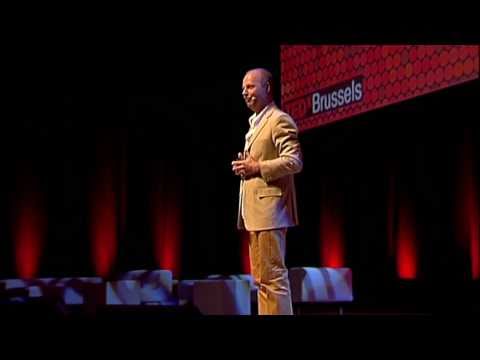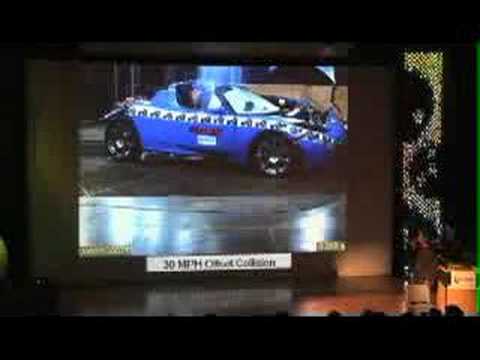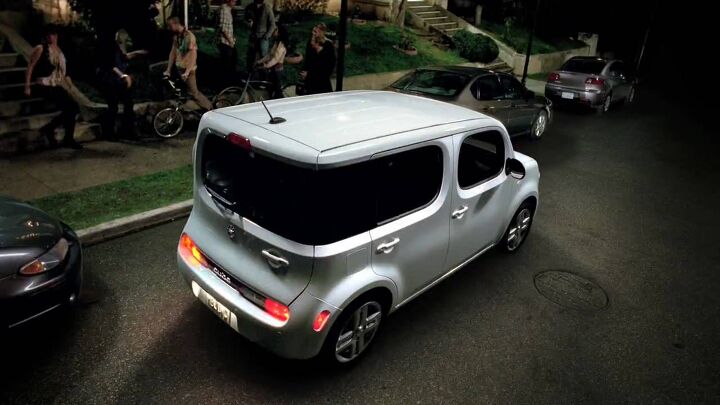#regulation
Asian Brands Complain That New CAFE Rules Favors Trucks, Detroit
When the White House opened negotiations over the next round of CAFE regulations for 2017-2025, I reckoned the automakers and regulators were “working in nearly unprecedented harmony.” Well, not so much any more. The WSJ [sub] reports that, although work on “the big number” is proceeding well, in the words of IHS Automotive’s Michael Robinet
This becomes a lot more politically divisive as they become much more specific in terms of the footprint of the vehicle.
In short, the original sin of CAFE, the two-tier system that drove SUV “light truck” sales and saw the creation of “trucks” like the PT Cruiser and HHR, has returned to haunt the latest round of negotiations. And, according to the WSJ, Japanese and Korean manufacturers are complaining that the new rules will motivate consumers to buy less-efficient offerings, and in turn give the Detroit manufacturers an unfair advantage. The kumbayas are over, and the gloves are off… but just how unfair are the newly-proposed rules?
Ford Fires Back Against Europe's "War On Cars"
After Greenpeace attacked Volkswagen for opposing proposed increases in the EU’s emissions regulation, Ford is joining the opposition to tough EU proposals. Ford Europe CEO Stephen Odell railed against the EU’s recent White Paper On The Future Of Transport [ PDF here], which calls for (among other things):
-“A higher share of travel by collective transport, combined with minimum service obligations”
-“The use of smaller, lighter and more specialised road passenger vehicles”
-“Road pricing and the removal of distortions in taxation [to] also assist in encouraging the use of public transport and the gradual introduction of alternative propulsion”
-All in the pursuit of the goal: “Halve the use of ‘conventionally-fuelled’ cars in urban transport by 2030; phase them out in cities by 2050; achieve essentially CO2-free city logistics in major urban centres by 203”
Now what about that plan might worry an auto executive?
White House Opens The 2025 CAFE Haggling At 56.2 MPG
A little education, as they say, can be a dangerous thing. Using some rudimentary game theory from my days of studying political science, I’d become fairly convinced that the CAFE target for 2025 would be set at 62 MPG for the simple reason that CARB wanted that number, isn’t elected and could pull out of negotiations if it didn’t get it. After all, the White House and automakers wanted a uniform national standard above all else… wouldn’t they give up a few MPG in order to preserve their main goal? Well, after talking with a few people familiar with the negotiations last week, I soon realized that things weren’t that simple (thanks a lot, bachelor’s degree). I was told that a compromise would be reached at between 50 and 60 MPG; CARB might not have other business with the Feds, but their Governor did and Jerry Brown wasn’t likely to back a play for 62 MPG. And sure enough, the Detroit News reports that the White House has opened negotiations with Detroit by backing a 56.2 MPG 2025 standard.
According to the DetN’s report The 56.2 mpg figure and EPA’s proposed greenhouse gas emissions limits equivalent likely is an opening bargaining point. The final proposal could change as automakers and the White House hold more meetings to try to again reach agreement. The administration plans to formally propose new standards in September and finalize them by July 2012. It estimated last fall that hiking fuel efficiency to 56 mpg by 2025 would boost the average vehicle cost by $2,100 to $2,600. But the administration said the rule would save car owners $5,500 to $7,000 over the vehicle’s lifetime in fuel costs, and owners would recoup the additional up-front cost within 2.5 to 3.5 years. But don’t get too caught up in calculating those numbers just yet, as it seems that at least a few of the auto industry’s allies were expecting something a little lower than that. As the DetN reports But the proposal caught some Michigan members of Congress off guard, and was higher than some automakers expected. On Tuesday morning, two White House aides — former auto czar Ron Bloom and Gary Guzy, deputy director of the White House Office of Environmental Quality — met on Capitol Hill with Sen. Carl Levin, D-Detroit; Rep. Fred Upton, R-St. Joseph, chairman of the House Energy and Commerce Committee; and Rep. John Dingell, D-Dearborn, to discuss fuel efficiency efforts. The three had heard rumors that the administration would back 55 mpg by 2025. Despite questions, the White House aides didn’t disclose the 56.2 mpg proposal for 2025. But Levin said automakers had been given a figure at the Wednesday meetings. “There was a scenario that was placed on the table which frankly shocked me and was very different from what we were told was not in the cards — even in terms of discussions — just hours before,” Levin said. In a statement Friday, Levin said he was surprised “to learn that the administration had decided to lay down a scenario for regulation of vehicle fuel economy and greenhouse gas emissions after telling us just the day before that no ‘decision’ had been made relative to those issues.” He questioned the administration’s forthrightness. Though none of the lobbyists I spoke would give out a specific number, they all said that a number was close and that it was essentially agreed upon. At least, as one Beltway insider put it, “the big number, the one that we’ll all stand up, hold hands and commit to” was very nearly a done deal. And the complex regulations that turn one politically totemic number into reams and reams of rules, guidelines, schedules and formulae? “Only about six people in the country actually understand that part,” admitted one long-time industry lobbyist, “and I’m not one of them.” Though negotiation over the CAFE “number” have probably been narrowed down to a 3-4 MPG window for some time now, the actual regulations, with all of the inevitable loopholes and “gaming” opportunities won’t be done until next summer. Besides, there’s a baked-in opportunity to rethink the entire deal, politically totemic “number” and all, in 2018.CAFE may seem like a huge fight, but this time around it seems that industry and regulators are working together in nearly unprecedented harmony.
What's Wrong With This Picture: The High Cost Of High Fuel Economy Edition
As the industry (or at least parts of it) and the federal government face off over forthcoming 2017-2025 CAFE/emissions standards, a Center for Automotive Research study is getting more play than ever from an industry that seeks to portray the high cost of fuel economy improvements as being not worth the additional costs to consumers. CAR has yet to publish its full study, but it’s clearly intended to counter an offensive from groups like the Consumer Federation of America, which uses its own study to show that CAFE regulation will actually save consumers money. This battle, over the cost to industry and consumers of passing a 62 MPG standard for 2025, has been playing out for months now, and will continue to go back and forth over the rest of this summer. And sure enough, the Union of Concerned Scientists and the National Resources Defense Council have both hit back against the CAR study, calling it “industry-advocate propaganda” in the Detroit News and arguing that it underestimates future reductions in technology costs.
Quote Of The Day: Driverless Distraction Edition
CARB To Bump ZEV Mandate, Automakers Fight Back
The WSJ [sub] reports
California regulators want zero-emission vehicles—those that don’t run on petroleum—to comprise up to 5.5% of new-car sales in the state, or roughly 81,300, in 2018. The target would rise annually to 14%, or more than 227,600, by 2025…
Tom Cackette, chief deputy executive officer of the California Air Resources Board, says his agency’s goal is to test whether electric cars can become mainstream vehicles, or wind up serving a “niche” market. Mr. Cackette said the state is investing in charging stations and other infrastructure, and he pointed to the sales of new plug-ins on the market to show that there’s a demand for the vehicles. He said he believes the California targets are feasible.
“That is a question we’ll only find out by trying,” he said. “I think [car companies] are making a pretty big investment in these vehicles, and they wouldn’t be doing that if they didn’t think there was a market there.”
Industry lobby groups are pushing California to roll the ZEV mandate into the forthcoming national CAFE standard. Small automakers like Mazda complain that placing a California ZEV mandate on top of national emissions standards would create a “costly burden…in light of the uncertain marketplace and infrastructure for electric vehicles.” And since CARB is leading the federal government by the ear towards a national standard anyway, it could simply push for a higher CAFE rate, which would at least allow firms the flexibility to comply on their own terms. Adding a major ZEV mandate won’t fundamentally change the national standard, but it absolutely will force automakers to spend huge amounts of money to develop a kind of vehicle that has major shortcomings, is only as green as local electricity generation, and has yet to prove itself with consumers. Whatever you think of emissions standards increases, it should be clear that consumers should determine what mix of technologies can best serve their needs while lowering fuel consumption and pollution.
Feds Could Pull Tesla Roadster's Advanced Airbag Waiver
Automotive News [sub] points us to a notice in the Federal Register, which notes that
In accordance with the procedures in 49 CFR Part 555, Tesla Motors, Inc., has petitioned the agency for renewal of a temporary exemption from certain advanced air bag requirements of FMVSS No. 208. The basis for the application is that the petitioner avers that compliance would cause it substantial economic hardship and that it has tried in good faith to comply with the standard…
Not so bad, right? As a small manufacturer, Tesla simply has to prove that it still isn’t in the financial shape to put advanced airbags in its money-losing Roadster… after all, nothing has fundamentally changed since the initial waiver was granted. But it turns out that NHTSA isn’t going to give out these waivers like candy anymore…
Quote Of The Day: This Car Is Not A Mobile Device Edition
I’m not in the business of helping people Tweet better, I’m not in the business of helping people post to Facebook better. My job is to make sure we keep people safe behind the wheel. I’m not going to deny the fact that people want these things. They do. Especially the generation behind us. They’re used to being connected 24 hours a day.
A car is not a mobile device — a car is a car. We will not take a backseat while new telematics and infotainment systems are introduced. There is too much potential for distraction of drivers.
NHTSA Administrator David Strickland took the war on distraction to the enemy in a speech to an auto technology conference, reports Bloomberg. With nearly every manufacturer racing towards ever greater implementation of connectivity, communication and entertainment systems in cars, Strickland’s rhetorical line in the sand foreshadows a serious confrontation between industry and government. Either that, or this is just Ray LaHood-style hot air calculated to make it look like something’s happening.
Take The Auto Safety Rorschach Test!
These two graphs preface NHTSA’s recent Vehicle Safety and Fuel Economy Rulemaking and Research Priority Plan [ PDF] for the 2011-2013 period.
What does the data tell you? What’s a safety regulator to do? Oh, and you might want to look at this graph before you answer…
Don't Drive Faster Than Your Speedometer Will Go
Editor’s Note: This piece, by John Carr, originally appeared at the National Motorists Association blog.
Wayne Crews recently posted an editorial on cost-benefit analysis and regulations. It’s worth a read.
In the 1970s the Carter administration prohibited speedometers from indicating speeds over 85 miles per hour. The idea was around before Carter, but his people implemented it.
Regulations require some justification. The justification was, people might not drive fast if they didn’t know how fast they were going. After some hand-waving and pulling numbers out of orifices it’s possible to fabricate a number of accidents and deaths per year prevented and call that the benefit of the regulation.
As part of Reagan’s regulatory reform the speedometer rule was scrapped. Rescinding a regulation requires some justification. The justification was that there was no real evidence that limiting indicated speed would reduce or had reduced driving speed.
An ineffective regulation is harmful because it imposes costs with no benefits.
Recall Report Urges Toyota Towards "Leadership," Away From Lobbying Alliance
The release of A Road Forward: The Report of the Toyota North American Quality Advisory Panel [ PDF], probably raised a few eyebrows around the industry this week, particularly at the headquarters of the Alliance of Automobile Manufacturers in Washington D.C… but not for any obvious reason. The report’s findings about Toyota’s internal reforms in the wake of last year’s recall scandal aren’t particularly mind-bending, and are well summarized in an introductory passage
First, the Panel believes Toyota needs to continue to adjust its balance between global and local control giving weight to local control in order to improve its communication and speed in responding to quality and safety issues. Second, the Panel believes that Toyota needs to ensure that it listens and responds as positively to negative external feedback as it does to negative internal feedback. Third, the Panel believes that Toyota must persist in more clearly distinguishing safety from quality and continue its efforts to enhance its safety practices and procedures.
In addition to identifying specific areas for improvement, the report places a heavy emphasis on “the leadership of Toyota’s top executives as they navigate the road forward, as well as the company’s leadership in the industry” as a way to avoid the traps it fell into prior to the recall scandal. And this emphasis on leadership could have some interesting effects…
Why Consumers Like CAFE
Why do consumers like CAFE? Well, the short answer is that a gas tax (which is infinitely superior from a pure policy perspective) hits them directly in the pocketbook, while CAFE forces automakers to absorb the cost increases before passing them along to consumers in the form of higher MSRPs. But underlying this fact is a larger issue that’s driving support of increased emissions regulation: gas is getting more expensive. As I pointed out in my recent editorial on the subject, for all the automakers’ whining about CAFE increases, it seems that energy prices are moving the market in the same direction anyway (the average family will spend $3,100 on gasoline this year).
According to a Consumer Federation of America study [ PDF], the steadily-rising price of energy has consumer’s even more concerned about gas prices and dependence on the volatile Middle East than they were during the height of the last fuel price shock in the Summer of 2008. As a result, support for a 60 MPG fuel economy standard doesn’t go below 49% (among Independents) even assuming a ten-year payback period, and earns the support of 63% of Democrats. And before you dismiss this support as hysteria, consider the underlying economics for a moment…
EPA Streamlines Alt-Fuel Conversion Regulations
The NYT reports:
The Environmental Protection Agency has revised its alternative-fuel conversion regulations for light and heavy-duty vehicles, making it easier for manufacturers to sell conversions that are compliant with clean-air laws. The 186-page ruling provides an exemption from a Clean Air Act prohibition against tampering when converting an engine to run on alternative fuel.
In the past, a manufacturer of alternative-fuel conversion systems was required to certify its products in the same manner that a vehicle manufacturer certified its vehicles — an expensive and difficult process. The new regulations provide a way to comply with clean-air standards through streamlined testing.
In essence, the rule change creates a graded compliance structure, depending on the age of the converted vehicle, making it easier to retrofit older vehicles. Read all about it at the EPA’s website.
Rental Car Industry Calls For Recall Of The Recall System
We’ve long struggled with finding the right balance of recall coverage here at TTAC, as the sheer volume of them makes it extremely difficult to separate the life-saving wheat from the irrelevant chaff. Now, it seems the rental car industry is tired of struggling with the same challenge and is lobbying the government for reform of the recall system. Bob Barton of the American Car Rental Association explains the problem to the NYT
We can’t determine the significance of a recall and whether a vehicle is no longer safe to operate or whether it can continue to operate and then should simply be brought in for service at some point in time. We simply want the manufacturers to instruct us when a vehicle needs to be grounded and we will absolutely comply.
Fair enough. Recalls are carried out for plenty of non-safety-critical problems. But where do you draw that line? And, more importantly, does the rental industry enjoy enough of a reputation for safety consciousness to assure customers that their calls for reform won’t result in any increased danger?
Is A Battle Between Automakers And Washington Brewing?
As I write this, President Obama and his top environmental and auto regulators are gathering for a speech on “American energy security” at Georgetown University. In this speech, the President is expected to make the case for ramped-up CAFE standards, EV subsidies and other transportation-related energy efficiency goals, and based on his politically pragmatic framing of the issue as being about “energy security” rather than environmental prerogatives, it seems that he’s serious about creating new policy rather than merely playing to his base. But, according to the Detroit News, the automakers are not going to take increased regulation sitting down, but appear to be gearing up for the first major legislative clash over automotive regulation since the green-tinged bailout. Automakers have begun to push back on both fuel economy and stalled safety legislation, explains Alliance of Automotive Manufacturer’s spokesperson Gloria Bergquist.
Automakers have always supported legislation and regulations that are driven by data and sound science, and there have been some examples where there was more wishful thinking and targets being selected that weren’t based on the data. So we have become more outspoken on the need for data to drive policy decisions.
Of course, automakers haven’t always supported regulation of their industry… but this is clearly a change in tone from the cowed industry that collapsed into the government’s arms just a few short years ago. A battle is brewing, so let’s look at some of the flashpoints in this forthcoming conflict.




















Recent Comments